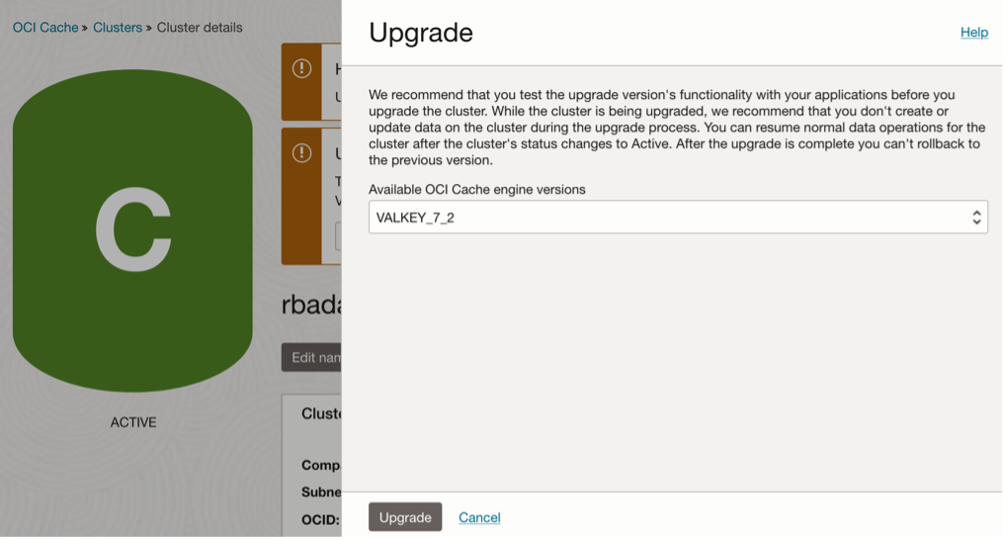In a previous blog article we expressed our commitment to support the Valkey project and our plan to offer it as part of the Oracle Cloud Infrastructure (OCI) Cache service. To recap, after Redis revised their licensing in March 2024 Valkey was launched as a drop-in replacement for Redis with backing from several leading cloud vendors, including Oracle, and is available under the open source Berkeley Software Distribution (BSD) 3-clause license. Valkey is a fork of Redis v7.2.
Valkey is gaining momentum across a wide range of organizations due to its memory efficiency and performance improvements, extensive support for modules (such as JSON and Vector Similarity Search) and active open-source community backing. Due to its true open-source commitment Valkey is available by default on many popular Linux distributions, making development with Valkey easier. The open-source community is dedicated to improving Valkey, focusing on areas such as the development of a standardized client library with Valkey Glide.
Today, we announce the general availability of Valkey in OCI Cache.
Why should you switch to Valkey in OCI Cache
OCI Cache offers a fully managed cache with lightning-fast response times. Customers can use sharded and/or non-sharded clusters based on their use case, scale their clusters and shards dynamically without any downtime while continuing to benefit from our simple and competitive pricing. And now, customers can choose to use the Valkey 7.2 engine for their OCI Cache clusters. Valkey in OCI Cache continues to support highly available, large-scale and distributed environments while providing the tools needed for effective monitoring and observability. The Valkey 7.2 engine offers efficient memory usage along with improvements in performance and resiliency. And more importantly, it provides up-to-date security fixes.. For these reasons we recommend that customers adopt the new Valkey engine in OCI Cache.
Migrating from Redis to Valkey in OCI Cache
Valkey maintains API compatibility with Redis OSS, allowing you to migrate your existing Redis applications to Valkey with zero code changes. The smooth transition makes it an appealing option for developers and teams who want to leverage Valkey’s performance advantages without the hassle of re-architecting their environment.
You can start by creating a new cluster with Valkey 7.2 in OCI Cache. And if you have a Redis 7.0 based cluster in OCI Cache you can migrate it to Valkey 7.2 with a simple single-click action, as shown below.

Upgrades come at no extra charge. Oracle Cloud Infrastructure maintains the same simple, transparent pricing for both Redis and Valkey engines; it is based on memory and the number of nodes rather than the number of cores, unlike other hyperscalers. You can find our pricing for the service here or estimate your costs here.
Ready to explore the new Valkey offering? Go to your Oracle Cloud Console today to launch a new Valkey cluster or upgrade your existing Redis clusters. To learn more about how Valkey 7.2 can benefit your organization, check out our product page and documentation.


